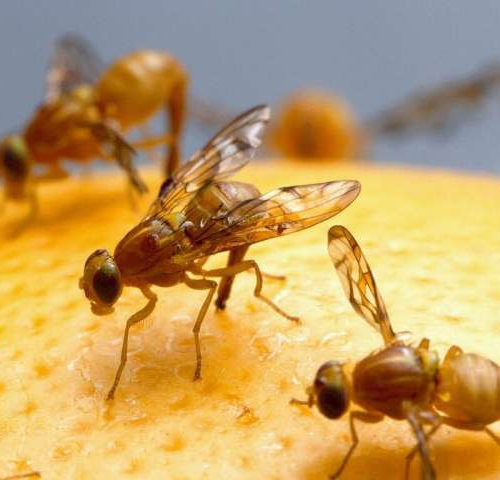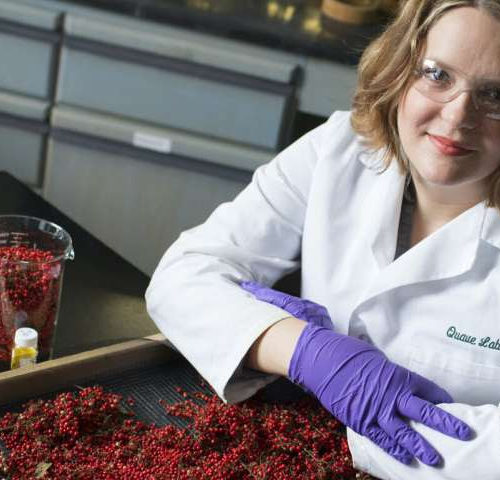Collaborative research between CHOP and CDC stresses importance of proper assessments at initial health care visit CHILDREN’S HOSPITAL OF PHILADELPHIA Philadelphia, June 4, 2020 – Head injuries that lead to concussions can happen at any age, and children impacted by concussions have different needs and recovery patterns. In a new study, researchers at Children’s Hospital...
Tag: <span>prevention</span>
Fruit fly study reveals link between the gut and death by sleep deprivation
by Harvard Medical School The first signs of insufficient sleep are universally familiar. There’s tiredness and fatigue, difficulty concentrating, perhaps irritability or even tired giggles. Far fewer people have experienced the effects of prolonged sleep deprivation, including disorientation, paranoia and hallucinations. Total, prolonged sleep deprivation, however, can be fatal. While it has been reported in...
Researchers discover key player in hepatitis A virus infection
by University of North Carolina Health Care Hepatitus A virus particles (pink) trapped in lysosomes (yellow intracellular organelles), unable to initiate replication in the cytoplasm of cells due to UCGC enzyme being knocked out. Credit: Maryna Kapustina, PhD, UNC School of Medicine How hepatitis A virus (HAV) manages to enter liver cells called hepatocytes and...
Nilotinib appears safe and affects biomarkers in Alzheimer’s disease clinical trial
by Georgetown University Medical Center A Georgetown University Medical Center clinical trial investigating the cancer drug nilotinib in people with Alzheimer’s disease finds that it is safe and well-tolerated, and researchers say the drug should be tested in a larger study to further determine its safety and efficacy as a potential disease-modifying strategy. The results...
Most young people with increased suicide risk only display ‘mild to moderate’ mental distress — study
The vast majority of young people who self-harm or experience suicidal thoughts appear to have only mild or moderate mental distress, instead of more obvious symptoms associated with a diagnosable disorder, according to a new study. As such, measures to reduce suicide risk in young people should focus on the whole population, not just those...
Scientists identify chemicals in noxious weed that ‘disarm’ deadly bacteria
by Carol Clark, Emory University Scientists have identified specific compounds from the Brazilian peppertree—a weedy, invasive shrub in Florida—that reduce the virulence of antibiotic-resistant staph bacteria. Scientific Reports published the research, demonstrating that triterpenoid acids in the red berries of the plant “disarm” dangerous staph bacteria by blocking its ability to produce toxins. The work...
Preventing ‘cytokine storm’ may ease severe COVID-19 symptoms
For some COVID-19 patients, the body’s immune response may be as destructive as the virus that causes the disease. The persistent high fevers, severe respiratory distress, and lung damage seen in some critically ill patients are all signs of an immune system in overdrive. Now, a new clinical trial will test a treatment that targets...
Promising study by Texas A&M scientists offers hope for Menkes disease patients
A Texas A&M AgriLife Research team has good news for patients with copper-deficiency disorders, especially young children diagnosed with Menkes disease. A team led by James Sacchettini, Ph.D. professor and Welch Chair of Science, and Vishal Gohil, Ph.D., associate professor, both from the Department of Biochemistry and Biophysics at Texas A&M University, published a paper...
A wearable device may help prevent unexpected death in epilepsy
by Chris Adam, Purdue University More than one-third of the people in the United States who have epilepsy are at risk for a deadly complication called “sudden unexpected death in epilepsy.” That means 1.2 million people are at risk for the complication each year—and it will kill about 4,000 of them. They typically have refractory...
BioButton to Help Track COVID, Ensure Safe Return to Work
c zBioIntelliSense, a Silicon Valley company, is unveiling its FDA cleared BioButton device that may help with tracking symptoms of COVID-19 in potential patients and help society return to a normal state of affairs. The BioButton is about the size of a large coin and, with the help of accompanying applications and triage dashboards, it...








